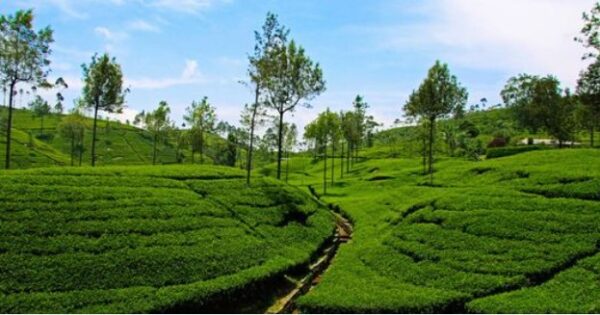Celebrating International Tea Day-by Kalani-eLanka

Every year on May 21st, tea enthusiasts around the world come together to celebrate International Tea Day, a day dedicated to honoring the cultural and economic significance of tea. This celebration not only highlights tea’s rich history but also raises awareness about the sustainable production and fair trade practices essential for the tea industry’s future.
The Origins and Significance of International Tea Day
International Tea Day was established by the United Nations in 2019 to promote and foster collective actions in favor of the sustainable production and consumption of tea. The day emphasizes the vital role tea plays in several countries’ economies, particularly in developing regions where tea cultivation and processing provide significant employment and income.
Tea is more than just a beverage; it is a symbol of community, tradition, and hospitality in many cultures. From the elegant Japanese tea ceremonies to the hearty chai stalls in India, tea brings people together, bridging diverse cultures and creating shared experiences.
The Journey of Tea: From Plantations to Teacups
The journey of tea from plantation to teacup is a fascinating one, involving meticulous processes that have been refined over centuries. Tea cultivation is primarily concentrated in countries like China, India, Kenya, and Sri Lanka, each of which produces distinct varieties known for their unique flavors and aromas.
- Cultivation: Tea plants, predominantly Camellia sinensis, thrive in tropical and subtropical climates with abundant rainfall. The leaves are carefully plucked, with the quality of the tea largely depending on the precision of this initial step.
- Processing: Once harvested, the leaves undergo various processes, including withering, rolling, oxidation, and drying. These steps differ based on the type of tea being produced – black, green, oolong, white, or pu-erh – each requiring specific techniques to develop its characteristic taste and appearance.
- Packaging and Distribution: After processing, the tea is graded, packed, and distributed to markets worldwide. This stage is crucial as it involves maintaining the tea’s freshness and quality until it reaches consumers.
The Economic Impact of Tea
Tea is the second most consumed beverage globally, after water. It supports millions of livelihoods, particularly in rural areas of developing countries. In India and China, for instance, tea plantations are major sources of employment, providing jobs to millions of workers, many of whom are women.
Moreover, the tea industry contributes significantly to these countries’ GDP and export earnings. Sustainable practices and fair trade initiatives are increasingly important to ensure that the benefits of the tea trade are equitably shared among all stakeholders, from farmers to consumers.
Health Benefits of Tea
Tea is renowned for its numerous health benefits, which vary depending on the type and preparation method. Some of the well-documented health advantages include:
- Antioxidant Properties: Tea is rich in antioxidants, which help combat oxidative stress and reduce the risk of chronic diseases.
- Heart Health: Regular tea consumption has been linked to lower risks of heart disease and stroke.
- Weight Management: Certain teas, such as green tea, are known to boost metabolism and aid in weight management.
- Mental Alertness: The caffeine content in tea can improve focus and concentration, making it a popular choice for many as a morning or afternoon pick-me-up.
Celebrating Tea in Your Own Way
International Tea Day is an excellent opportunity to explore the world of tea, try new varieties, and learn about the cultures that cherish this timeless beverage. Here are a few ways to celebrate:
- Tea Tasting: Host a tea tasting event with friends or family to sample different types of tea from around the world.
- Learn About Tea Cultures: Research the tea traditions of different countries and try replicating them at home.
- Support Fair Trade: Purchase fair trade-certified tea to ensure that the farmers and workers behind your cup are fairly compensated.
- Sustainable Practices: Opt for eco-friendly tea products and be mindful of reducing waste, such as using reusable tea strainers and composting tea leaves.
Conclusion
International Tea Day is more than just a celebration of a beloved drink; it is a call to recognize the profound impact tea has on our global community. Whether you are a casual tea drinker or a passionate connoisseur, take a moment on May 21st to appreciate the journey of tea from leaf to cup and the people who make it possible. Here’s to tea, a beverage that continues to unite and inspire people around the world.







